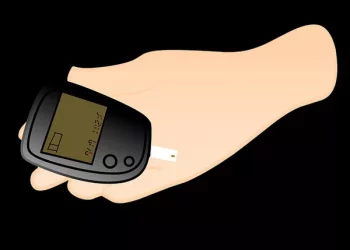Early detection of Type 1 diabetes (T1D) could prevent the suffering of undiagnosed individuals and reduce the “invisible burden” associated with the condition, according to patients and medical professionals advocating for widespread screening programs across Europe.
Speaking at the Early Detection Policy Forum in Amsterdam on March 19, 2025, Sanne Schripsema, a 27-year-old living with T1D, shared her personal experience of misdiagnosis. At age 12, she was wrongly diagnosed with anorexia despite suffering from severe symptoms of T1D, including fatigue and weight loss. Schripsema’s condition went undiagnosed for a year, ultimately leading to academic setbacks and lasting psychological effects. “I want to create a great future for myself, but I don’t know what that year did to me,” Schripsema said, reflecting on her delayed diagnosis.
T1D is an autoimmune disorder where the immune system attacks insulin-producing cells in the pancreas, making it difficult to regulate blood sugar. While there is no cure, early detection allows for better management of the disease and can prevent serious complications.
The forum, hosted by Breakthrough T1D NL and supported by several diabetes organizations, aimed to emphasize the importance of early diagnosis to avoid crisis situations, such as Diabetic Ketoacidosis (DKA), which often occur when T1D is detected too late.
Italy Leads with Nationwide Screening Program
In a pioneering move, Italy launched a nationwide screening program in September 2024, testing all children between the ages of 1 and 17 for T1D. While Italy sets an example, most European countries lack comprehensive screening, and many cases are only diagnosed in emergency settings, when the disease has already caused significant harm.
Professor Chantal Mathieu, Coordinator of EDENT1FI, an initiative focused on detecting T1D in its early stages, underscored the importance of screening before symptoms manifest. “We know that if two or more autoantibodies are detected during screening, it confirms the early stage of T1D,” she explained, highlighting the potential for preventive measures when the condition is identified early.
Challenges and Considerations for Screening Programs
Experts at the forum also discussed the challenges of implementing widespread screening. Markus Lundgren, Consultant Pediatrician at Lund University, noted that early diagnosis and close monitoring can prevent crises like DKA. However, without a dramatic health event, a child’s understanding of the severity of T1D may be diminished, potentially affecting their long-term management of the condition.
Prof. Jurgen Vercauteren, a member of EDENT1FI’s Patient Advisory Committee, emphasized the need for thoughtful integration of screening into national healthcare systems, starting with high-risk groups, such as family members of individuals already diagnosed. “It’s not that simple,” Vercauteren, who has T1D himself, remarked, addressing the reluctance some patients may feel about having their loved ones screened.
The Invisible Burden of T1D
Dr. Maartje de Wit, Principal Investigator in Diabetes Psychology at Amsterdam UMC, described the “invisible burden” that comes with a T1D diagnosis, which often leads to anxiety and grief. The emotional and psychological impact of T1D diagnosis is significant, making the case for providing tailored support alongside medical treatment.
The forum also acknowledged the challenge of implementing these screening programs across diverse healthcare systems in the European Union. Bart Torbynes, Executive Director of the European Diabetes Forum, stressed the importance of raising awareness and ensuring that the voices of those with lived experience guide policy decisions. “Nothing is more powerful than the voices of those who have experienced the disease firsthand,” he concluded.
As the call for early detection grows louder, the need for actionable and comprehensive screening strategies across Europe has never been more urgent.
Related topics:
Diabetes May Disrupt Brain’s Reward and Memory System, Mimicking Early Alzheimer’s
Multicenter Clinical Trial Investigates Impact of Diabetes-Educated Psychologist
Simplifying Diabetes Management for Older Adults: Key Strategies and Advances in Technology
























